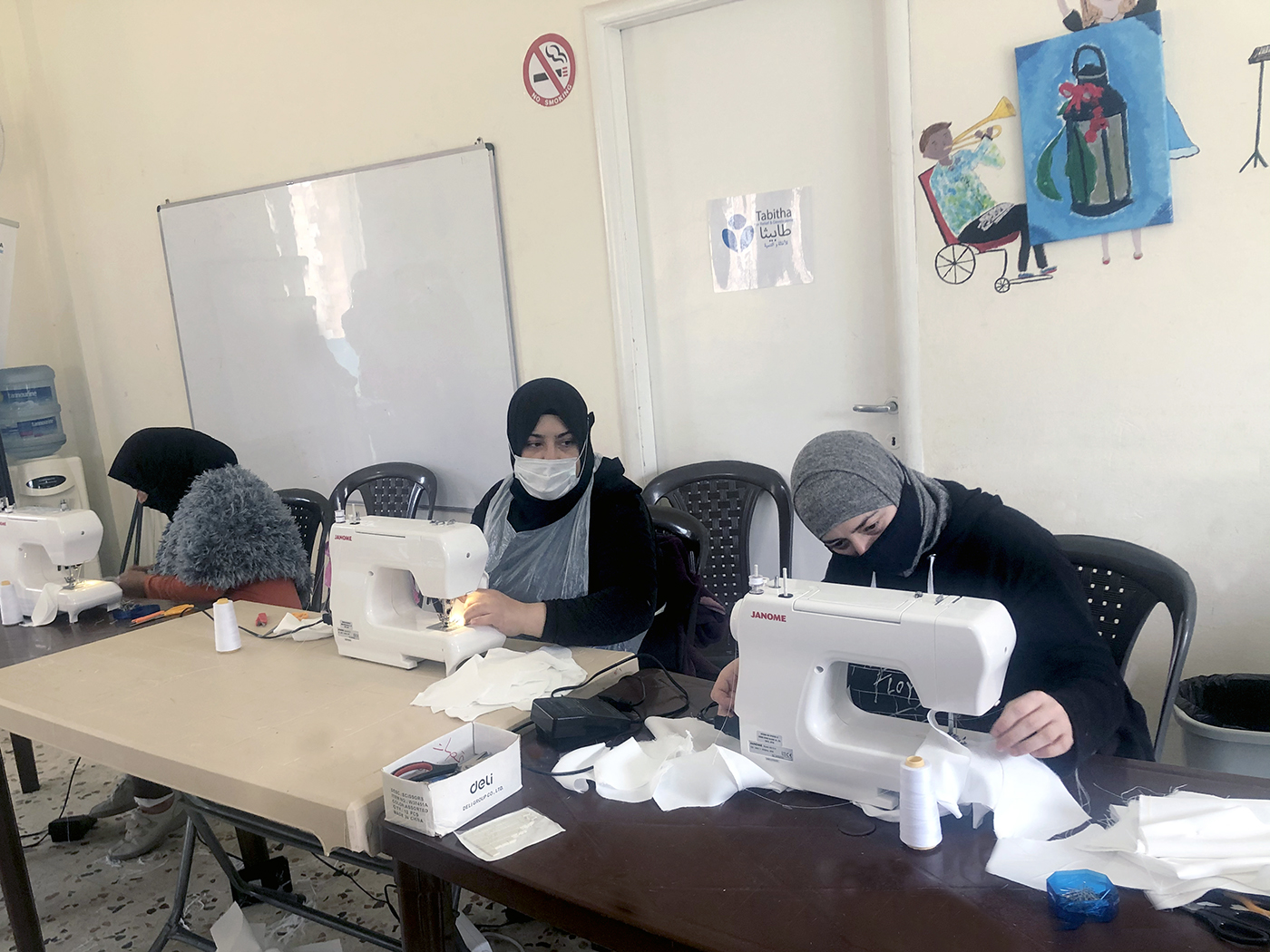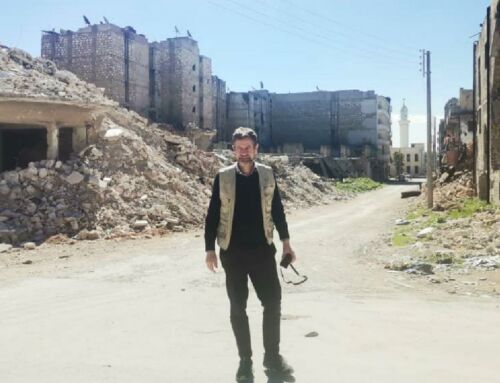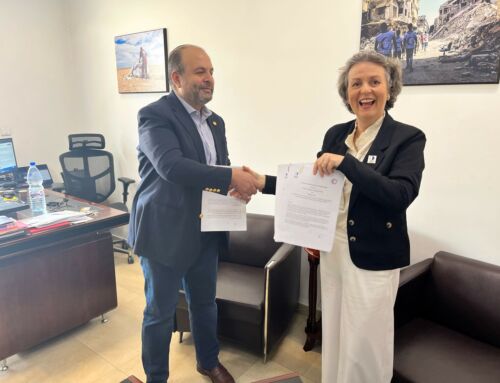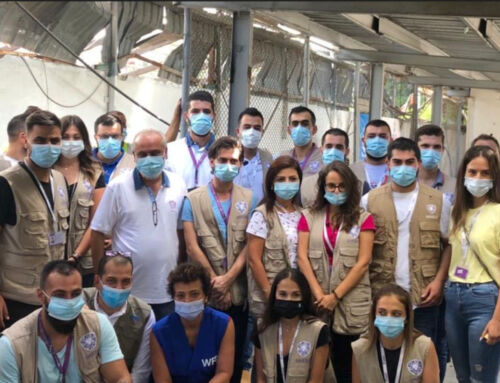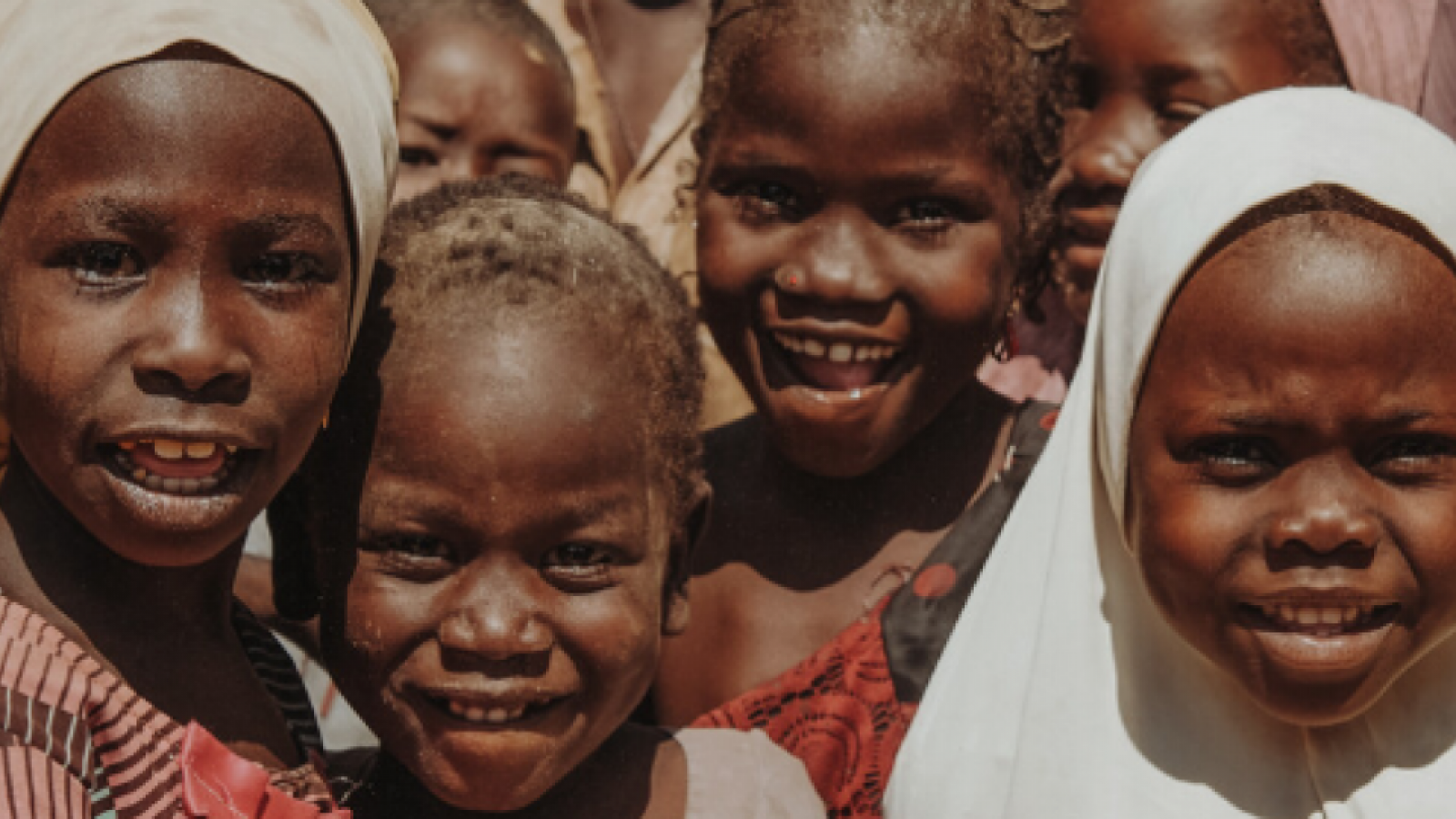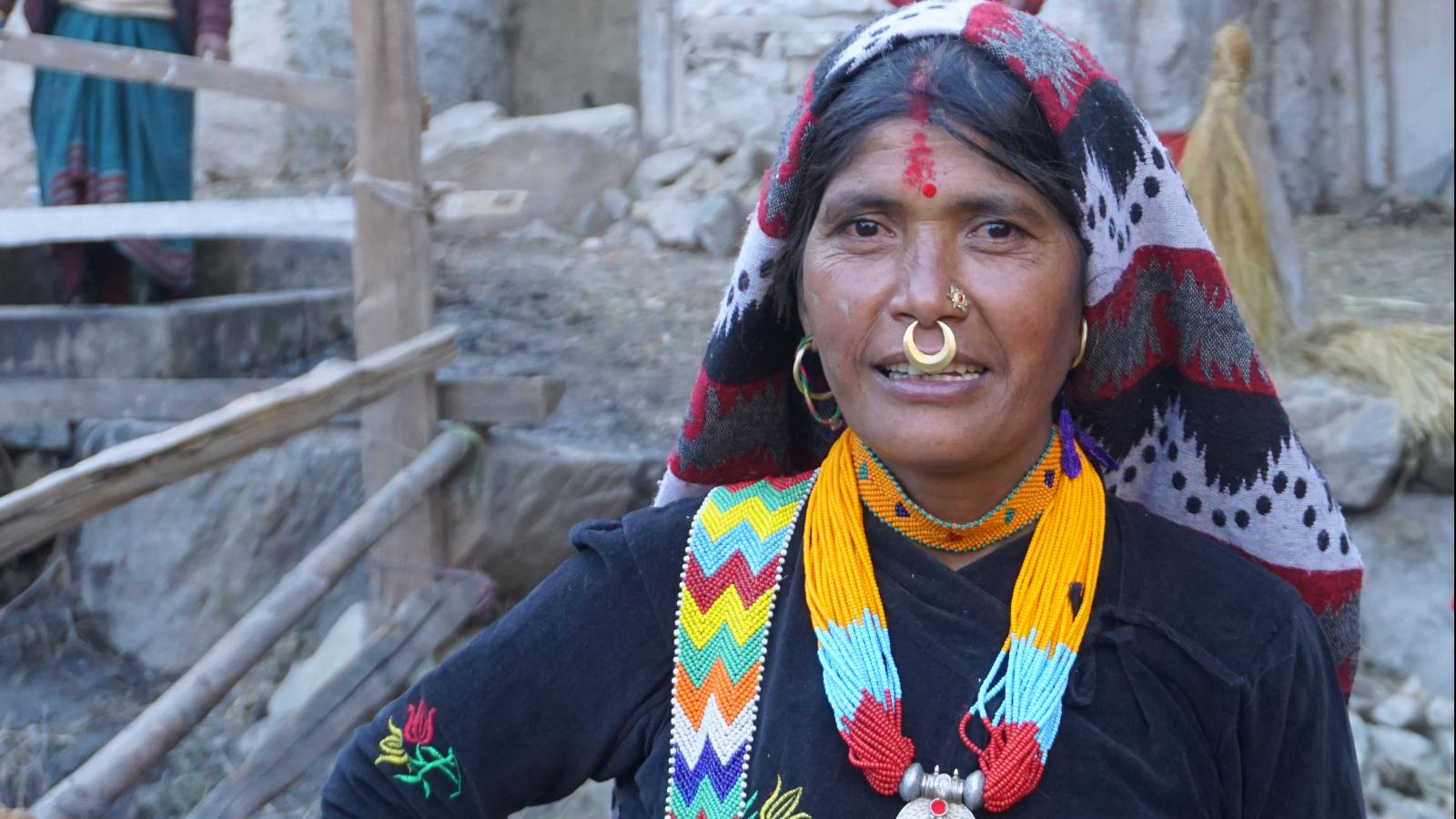At the local civic center in Batroun, Lebanon, Sarah and 23 other vulnerable Syrian women are busy sewing face masks. In addition to giving Sarah an opportunity to help other vulnerable people, the project has also had a great impact on her personally: she can now continue her studies.
Sarah is a student. However, due to the COVID-19 outbreak and the growing economic crisis in Lebanon, her parents can no longer pay for her education.
Sarah was therefore faced with having to give up her dream of continuing her psychology studies. She therefore contacted Mission East’s local partners in Batroun and applied to become part of their face mask sewing project.
25,000 people are secured face masks
Sarah, along with 23 other women, was accepted as a participant in the project, which aims to produce a total of 25,000 face masks over a period of 40 working days.
The 24 women, all of whom are vulnerable Syrian refugees, receive pay for their work – a fact which has not only enabled Sarah to pay to continue her studies, but has also been valuable to her in other ways:
“I have learned to manage my time, to take responsibility and I can now also help my parents,” says 19-year-old Sarah.
Sarah says that the work experience has motivated her, and she now believes she will be able to achieve the goals she dreams of.
A piece in the puzzle to fight against infection
When the face masks are ready, 10 volunteers will distribute them among vulnerable families whose economic situation so not allow them to procure face masks themselves.
Through the project, the 10 volunteers have been trained in disseminating important information on how to prevent the spread of COVID-19. In addition to the reusable face masks, this information will also reach the 25,000 vulnerable people in the area.
Developing a wide range of competencies
The face masks project is part of Mission East and local partner Tabitha’s work in Batroun and Aley, which targets both Syrian and Lebanese women. The efforts, which are funded by the Danish
Ministry of Foreign Affairs and Danida, are among other things about giving women some basic skills to create a livelihood.
For 33-year-old Binan, another project participant, the time at the project has given her the courage to do more: “I want to buy a sewing machine so I can sew for my children and for my neighbors,” she says.
Also for 53-year-old Jamila, the face mask project has been of great importance. “This is my first job ever – I was mentally exhausted, but now I feel better,” she says.
In addition to sewing knowledge, women are taught basic life skills with themes such as empowerment, understanding of human rights, child protection, hygiene, etc., and they are offered legal advice.
Sarah is one of the 24 vulnerable Syrian refugees participating in the face mask project:

